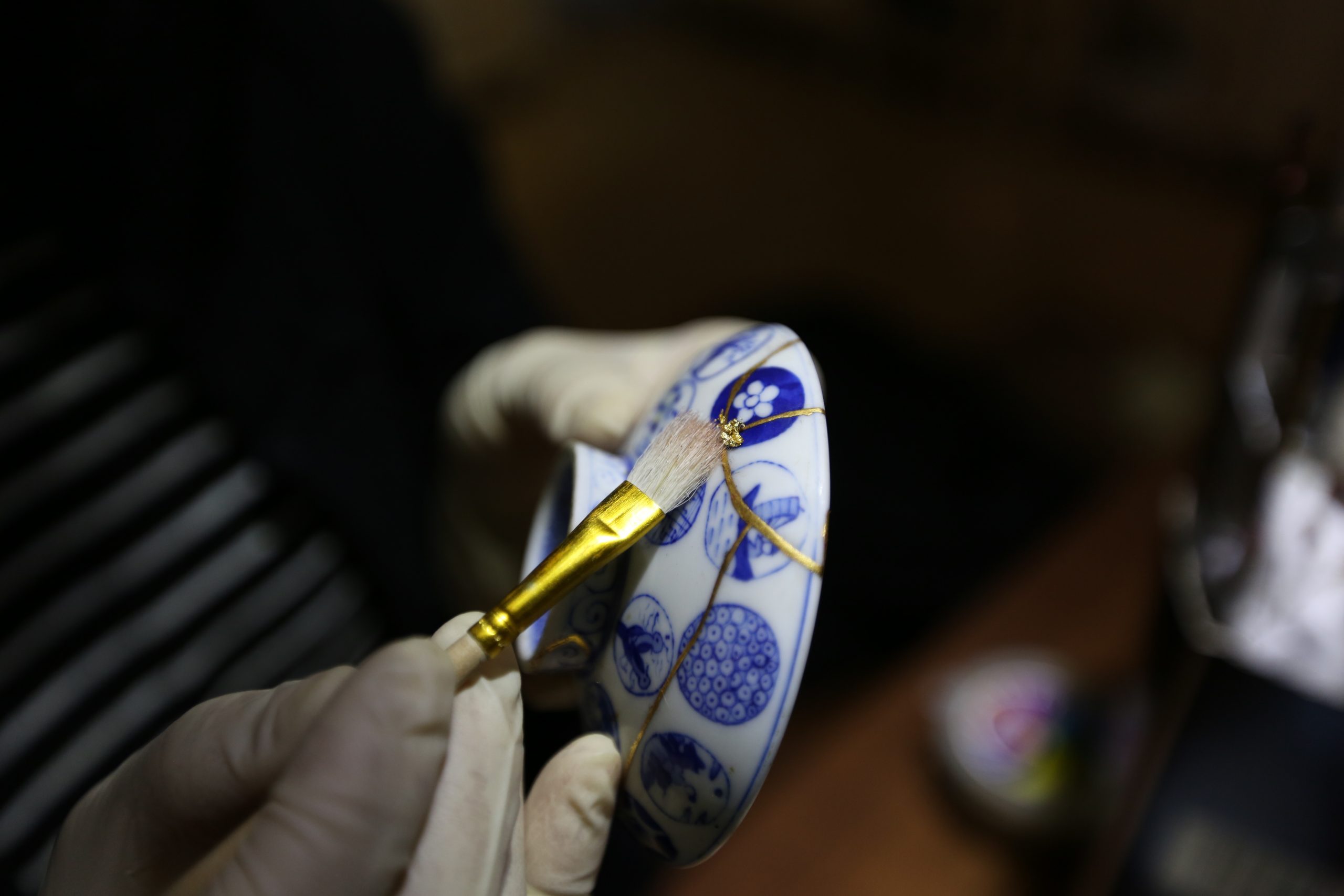We can attempt to live a life free from battle scars, to reach the end of our time in pristine condition, but that’s not what we’re here for. The sterility necessary for such a life would be near impossible, offering an arid life at best, involving as its highest priority the avoidance of relationships in any form. The truth is that so often, it is our falls or fails that become the foundation for our magic.
At the heart of the ancient Japanese art is the idea that an object’s imperfections should be embraced, never hidden.
Clay pottery begins its life as a shapeless, earthen mass. With time, effort and the tender hand of an artist striving for perfection, that shapeless earthen mass is turned into something else – a cup, a bowl, a plate, a vase – something valued for its usefulness, the time it took to create and of course, its inherent beauty.
But what if that object, valued for its flawlessness, breaks?
According to Kintsukuroi, that piece can now be something even stronger and more beautiful than it was in its original form.
Rather than hiding the break or collecting the broken pieces and scraping them from dustpan to bin, the piece is repaired, its broken seams joined with gold. The break becomes an important part of the object and speaks eloquently of its history.
The same applies to people. We have our breaks, our cracks along the seams, our battle scars. They come with every version of life.
Relationships come with the biggest battle scars of all, be it with a lover, a friend, parent, brother, sister, child. We will walk away richer for being in relationship to another, hopefully happier, but never unscarred. It’s an unavoidable part of being human.
We feel our edges. We stretch against them. We hold steady. We stagnate. We find courage and daring and we push beyond. Sometimes. Sometimes we are pushed. Sometimes we fly. Sometimes we drop. Hard. Sometimes we wonder how we’ll ever get back up.
Not only are the cracks unavoidable, but they are also important as it’s from these cracks that our new growth shoots. It’s tempting to hide these breaks, to push them deeper to somewhere under our skin unseen by us, the people who love us, and the rest of the world. But when handled with tenderness and grace, we can fill these cracks with gold, own our history, and be stronger for the opportunity. We can ‘up psychle’.
It’s the fragility in us – and it’s there in all of us – that brings the opportunity to find the gold. It’s these cracks that speak of our resilience, our strength and our humanity, ultimately leading to something even more beautiful than perfection.



Excellent post. I wass checking constantly this blog and I
amm inspired! Very elpful information specially the final section :
) I care for such info a lot. I was looking for this certain information for a
long time. Thank you and good luck.
Thank you! And you’re very welcome.